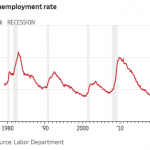What is Decentralized Finance (DeFi) and How Does It Work?
In a world dominated by traditional financial institutions, a new player has emerged to challenge the status quo. Decentralized finance (DeFi) is revolutionizing the way people transact by using blockchain technology and cryptocurrencies to facilitate peer-to-peer transactions. By bypassing banks and other intermediaries, DeFi aims to reduce costs and transaction times for users.
The key principle behind DeFi is to empower individuals with direct access to financial services, without the need for centralized institutions like banks. This emerging financial system is still in its infancy, but it is already making waves in the industry.
Through peer-to-peer financial networks, DeFi utilizes security protocols, connectivity, software, and hardware advancements to enable users to transact directly with each other. By leveraging blockchain technology, DeFi eliminates the need for intermediaries, providing users with greater autonomy and control over their finances.
One of the core components of DeFi is the blockchain, a distributed and secure database where transactions are recorded and verified through automated processes. This technology ensures the security and immutability of transactions, making it an ideal platform for financial transactions.
DeFi applications, such as Aave, offer a wide range of services, from basic savings accounts to advanced liquidity markets. Users can participate in activities like lending, yield farming, and liquidity provision, all without the need for a third party.
While DeFi offers numerous benefits, such as accessibility, low fees, and security, it is not without its challenges. The industry is still unregulated, making it vulnerable to hacks, scams, and faulty programming. Additionally, the volatility of cryptocurrencies and the hype surrounding DeFi projects can pose risks for investors.
Despite these challenges, DeFi presents a unique opportunity for individuals to participate in a more inclusive and transparent financial system. As the industry continues to evolve, it will be crucial for users to conduct thorough research and due diligence before getting involved in DeFi.
In conclusion, decentralized finance is reshaping the financial landscape, offering a glimpse into a future where individuals have greater control over their financial transactions. While the road ahead may be fraught with challenges, the potential benefits of DeFi are undeniable. Stay tuned as this groundbreaking technology continues to disrupt the traditional financial industry.


:max_bytes(150000):strip_icc()/Youngwomanusescreditcardwithcomputer-57830510802b4368bf675c42a8b6a58b.jpg?w=150&resize=150,150&ssl=1)
